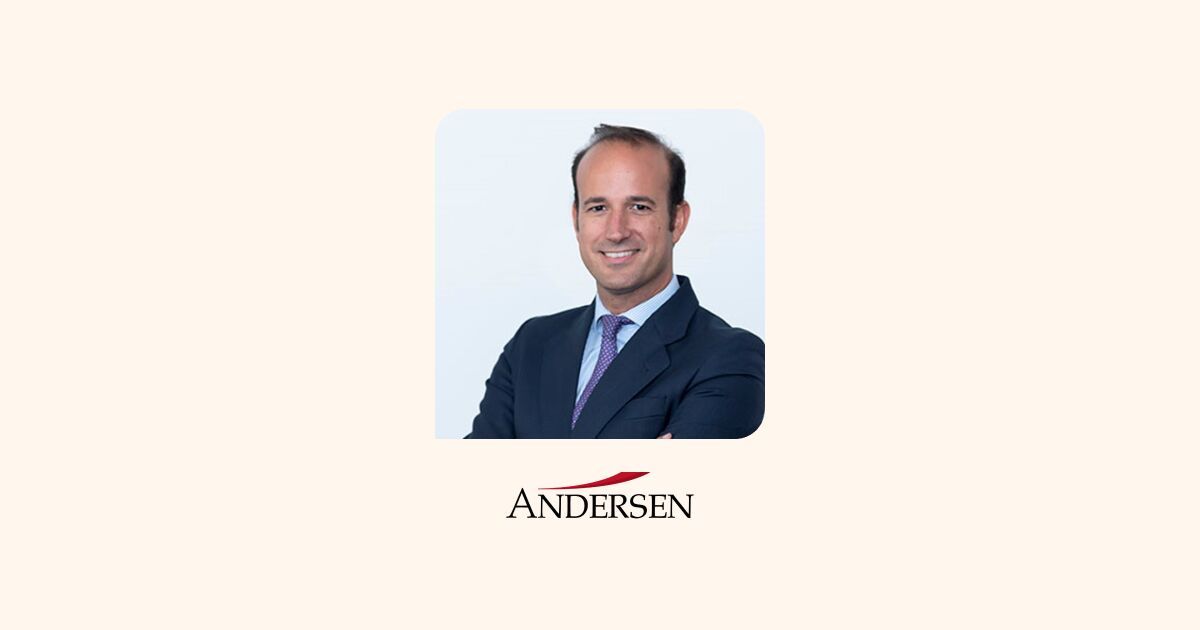Introducing the next speaker in our Spanish Fintech Interview Series and online webinar “Launch your fintech business in Spain” – Miguel Prado Gangoiti, Partner of Financial Regulation & Fintech at Andersen.
About Miguel Prado (Andersen)
He specialises in legal and regulatory advice to national and foreign credit institutions, payment and e-money institutions, investment firms and collective investment institutions. He also has extensive experience in regulatory advice on cross-border transactions, and authorization procedures for entities (including the fintech sector).
Recognized by the Chambers Europe directory in the area of Banking & Finance, Miguel collaborates as a professor at the Instituto Superior de Derecho y Economía (ISDE) and is a regular speaker in the full-time Masters in access to the legal profession.
If you are looking to obtain a licence for a Payment Institution or E-Money Institution to operate in the EEA, then you need to read this interview first! In it, Miguel talks about the advantages of Spain as a financial institution regulator, the Spanish regulatory Sandbox, what you need to prepare before starting the licencing process and how to make the licencing process smoother.
The interview of Miguel Prado (Andersen)
1) Tell us about yourself…
Well, my name is Miguel Prado.
I am now a partner of the Financial Regulation and Fintech department at Andersen, Spain, an international law firm which operates in a variety of different European and global jurisdictions. We basically provide legal and tax services to all kinds of companies, in particular within the financial regulation sector.
2) How do you help fintech companies?
We provide legal and regulatory advice to all kinds of regulated companies belonging to the financial sector, including banks, payment institutions, electronic money institutions, investment firms, management companies, insurance brokers, and insurance companies, among others
We provide on-going legal and regulatory advice for all types of regulated entities in the financial sector, both nationally and internationally, including licensing procedures before Spanish regulators (i.e. the Bank of Spain, National Securities Market Commission (Comisión Nacional del Mercado de Valores) or Directorate-General of Insurance and Pension Funds (Dirección General de Seguros y Fondos de Pensiones). We also provide legal and regulatory advice to fintechs, innovative services to new players entering the financial sector.
3) Could you tell us a bit more about the Spanish Sandbox concept?
On 14 November 2020, the Bank of Spain published Law 7/2020 for the digital transformation of the financial system (the “Sandbox Law”). The Sandbox Law creates a testing area (sandbox) for technology-based financial innovations under the supervision of the competent supervisory authorities depending on the sector in which each project operates.
Fintech companies or companies delivering their services to the fintech industry may apply for access to the sandbox, which is open for projects that meet the following criteria:
- The service or product is disruptive and technologically innovative.
- The service, product or project has a prototype, offers a minimum level of functionality, and has at least 3-6 months or market traction.
- The project must demonstrate that it provides added value to society and industry in aspects such as improving regulatory compliance or increasing efficiency.
The process involves 1-1.5 months for application review and 3-6 months for testing. If the test is successful, the company can apply for the specific licence (when applicable). Therefore, it is a way to assess the viability of the project itself prior to formally obtaining the corresponding license (thus avoiding unnecessary costs and expenses required during the licensing process).
For example, when applying for an E-Money Institution (EMI) or Payment Institution (PI) licence, the Bank of Spain evaluates and grants the licence within just 3-6 months (usually, the process of receiving the licence takes 12 months or more).
4) What’s the biggest advantage of the Bank of Spain as a regulator?
I would say that the openness and proactive approach to communication with candidates or applicants is the biggest advantage. In addition, it is a great opportunity for the different regulators to analyse different disruptive and complex business models (understand market needs).
Different regulators across the EEA have different viewpoints on the difference between an EMI and PI licence. What is the attitude of the BoS? When shall you apply for an EMI, and when is a PI enough?
The issuance of an EMI or PI institution licence is determined by the type of activity the company is engaged in. Issuing or non-issuing of electronic money is the main indicator of the granting of the particular type of licence.
The opening of multifunctional e-wallet accounts – not just payment accounts – are considered the same as the issuance of e-money. And for these services, the Bank of Spain grants an EMI licence. For services that do not include issuance of e-money, the regulator grants a Payment Institution licence.
5) What important things should new companies know before involving lawyers?
Companies willing to apply for a licence before involving legal advisors should do their homework. At the very least, they should form a team and prepare drafts of the documents related to business and IT, and also decide on the range of payment and e-money services they want to provide. The latter will define the type of licence they need to apply for.
6) What are the requirements regarding the team?
There are critical regulator’s requirements, with one of the most important being specific to the hiring of local personnel. Board members and other roles involved in decision making, such as reporting and company operations, e.g. Compliance Officer, Chief Operational Officer, Risk Officer, should be local and reside in Spain.
This means that when planning your business, you must start by creating a team that adheres to the regulatory requirements. As you know, finding suitable personnel is a big challenge and the process needs to be begin before the application is made.
7) What documents do you expect to get from a client?
Typically, professional lawyer services exclude the preparation of specific business documentation e.g. business plan, financial projections, IT documentation etc. This means that applicants must prepare the required documents in advance, so that they can be reviewed, with internal policies being prepared based the on specific plans of a particular client.
8) What advice you can give to applicants?
- Be specific and as detailed as possible, e.g. in your business plan or program of activities. Well-prepared, general “marketing” texts do not work well for the regulator.
- Be realistic. Do not include services, financial forecasts or any other figures that are not achievable.
Register free for our on-demand webinar “Launch you fintech business in Spain”:
In this webinar, Miguel Prado Gangoiti, Partner Financial Regulation & Fintech (Andersen) wil speak about:
Sandbox by the BoS: pros and cons
- Explanation of the main characteristics and particularities of how the Sandbox works in Spain. In addition, an overview of the access requirements, the deadline for the calls, the projects accepted, and the criteria being followed by the regulators to date will be provided.
- Discussing the pros and cons of submitting a project to the Spanish Regulatory Sandbox.
Application process step by step: roadmap, timeline and documents
- Main steps to follow in order to obtain an authorisation as a payment or electronic money institution from the Bank of Spain.
- Explanation of the different stages of an authorisation procedure from the early stages to the start of the institution’s activities.
- Explanation of the different documents that integrates the authorisation procedure, making reference to those more critical for Bank of Spain.








